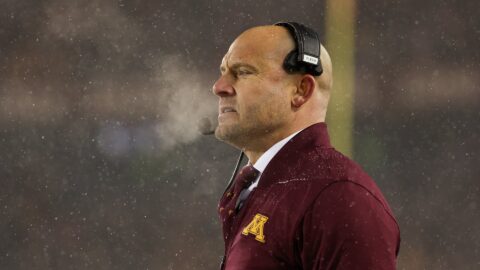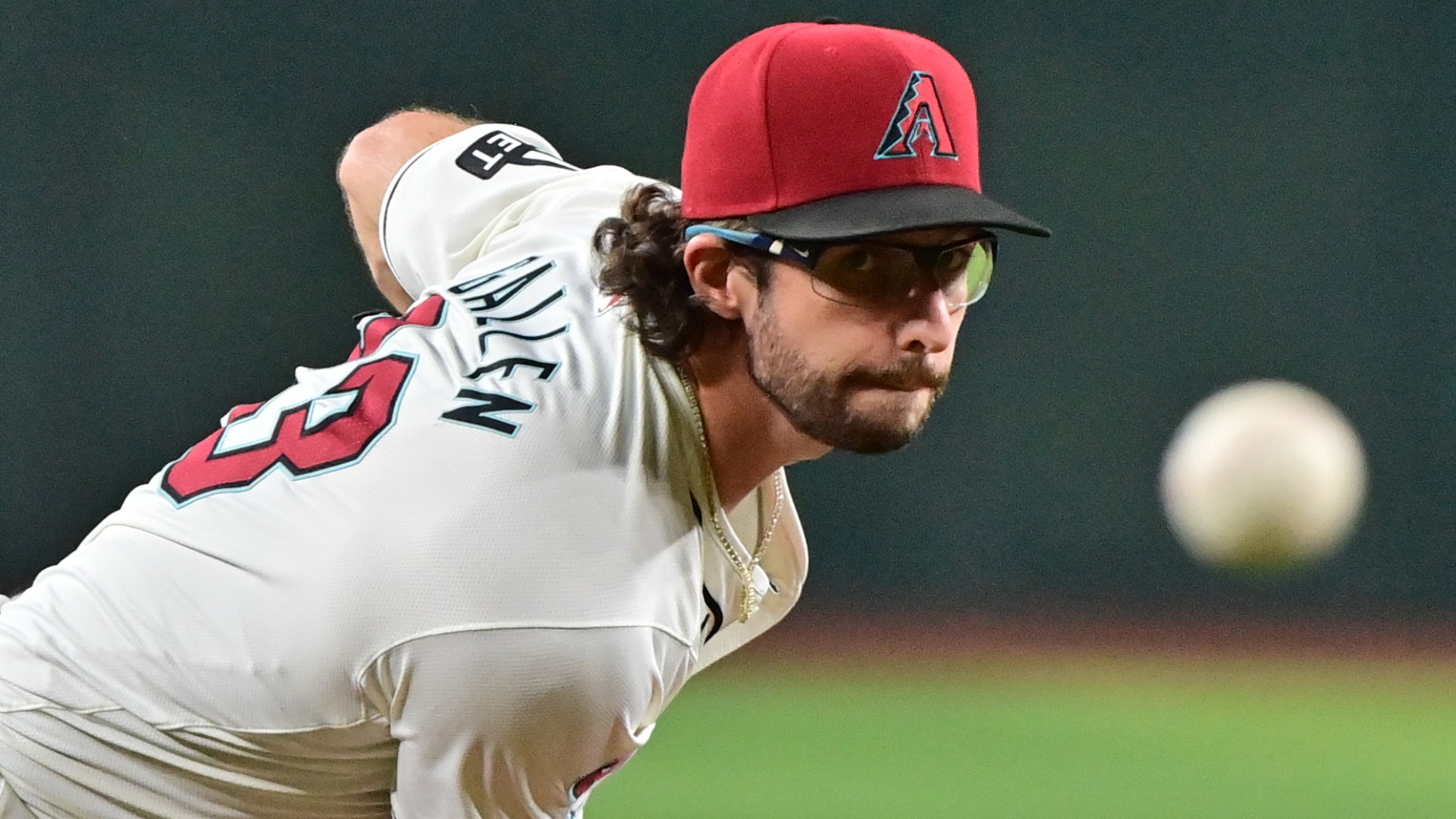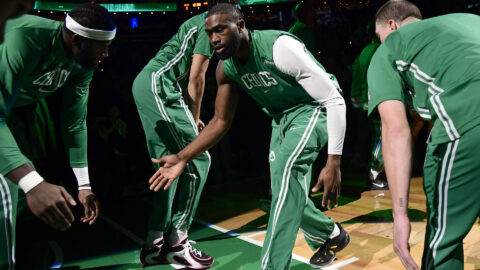FOXBOROUGH, Mass. — It’s becoming an annual tradition in Foxborough. The New England Patriots — who bore a dynasty by playing smart, solid football with flawless execution and nary a mistake — have a role reversal against the Indianapolis Colts, and they return home Monday with head coach Bill Belichick having to address the issues that cost his team a victory.
Down in defeat
It surely wasn’t a pleasant feeling, losing to a conference rival after building a 17-point lead in the fourth quarter. The Patriots’ loss guarantees they won’t get the AFC’s No. 1 seed — the Pats would have to finish 7-0, while the Colts would have to go 3-4, among other scenarios with the other two division leaders — which likely means they’ll have to win one or two playoff games on the road to get to the Super Bowl.
"I think after the last 12 hours or whatever it’s been, it’s pretty much more of the same feelings that we had from [Sunday] night," Belichick said. "It’s disappointing to come up short in a game like that, and I think we all feel it, as we should. We put a lot into it. There were a lot of plays in that game that you think about. Obviously, from a coaching standpoint, there are always a lot of things that could have been done better by me, the players and everybody else. You always feel that way after a tough loss like that. We’ve all got to do a better job, starting with me, and find a way to win those games."
Belichick was asked later if this loss would stay with him longer than others, and he replied, "Yeah, every loss is hard, so yeah."
The call
Belichick’s decision to go for it on fourth-and-2 from the Pats’ own 28-yard line with a six-point lead and 2:08 remaining in the fourth quarter will go down as one of the most captivating calls in his career. Obviously, the Patriots came up about a foot short when Melvin Bullitt knocked Kevin Faulk just inside the 30-yard line, and the Colts scored after getting great field position.
Asked if Belichick would do it all over again, he replied bluntly, “You only get one chance.”
Belichick explained his decision once again.
"The same thing I said after the game — I thought it was our best chance to win," Belichick said. "I thought we needed to make that one play, and then we could basically run out the clock. We weren’t able to make it."
Belichick was asked if the third-down play was called while knowing he anticipated going for it on fourth down, but the head coach shot down that notion.
"No, we pretty much made that decision on third down," Belichick said.
Taking the blame
Belichick shouldered responsibility for the confusion prior to the fourth-down play, as the pre-snap execution was poor. After the Patriots’ third-down play, the punt team ran onto the field and the offense started walking toward the sideline, which clearly showed the coaching staff and players were not on the same book, let alone the same page.
Therefore, the Patriots had to burn their final timeout in order for Belichick to get his instructions to the offense.
"We had a little miscommunication on that as to whether we were going to go or punt it," Belichick said. "That wasn’t cleanly handled. Again, I’ll take responsibility for that."
Breaking down the play
Tom Brady lined up in the shotgun with Faulk in the backfield. Wide receiver Isaiah Stanback — playing in his first game with the Patriots — lined up wide left against safety Tim Jennings. Tight end Ben Watson lined up inside of Stanback, and Watson was being covered by safety Antoine Bethea. Wide receiver Wes Welker lined up inside of Watson, and he was being covered by cornerback Jerraud Powers. Wide receiver Randy Moss lined up wide right and was covered by cornerback Jacob Lacey.
Before the snap, Faulk motioned right and lined up in the slot inside of Moss, which forced safety Melvin Bullitt to run up closer to the line.
The Colts were in a nickel formation with four defensive linemen, two linebackers and five defensive backs — two cornerbacks and three safeties. Once the ball was snapped, all four linemen rushed, along with linebacker Gary Brackett, who came through the gap between center Dan Koppen and left guard Logan Mankins. Even with five guys rushing, the Colts quickly generated pressure on Brady. The other linebacker, Clint Session, stayed back in a zone, presumably to make sure Faulk didn’t run an inside slant.
The Patriots have said they liked the play they called, and they’ve run it successfully many times in the past. Stanback ran a seven-yard hitch route, running straight up the field and turning back toward the ball in front of Jennings. Watson ran a go-route with a downfield fade toward the left sideline. If Brady was given enough time, Watson might have cut back across the middle like he did late in the Buffalo game, but that was a moot point because of Indy’s pressure.
Welker ran a quick slant and had enough room over the middle against Powers, but Brady never looked to that part of the field. Instead, Brady kept his eyes on Faulk, who ran ahead three yards and then cut toward the right sideline. Faulk was in place to make the catch past the 30-yard line — he made his cut at the 31 — but a hit from Bullitt pushed him toward the backfield, and a bobble caused him to lose even more ground.
Meanwhile, Moss was the safety option. He ran straight ahead for five yards, and it was his job to establish position against the smaller cornerback, who was in single coverage. If Brady ran into instant trouble, he would have lobbed the ball high to Moss, who would have had to make a nice play to pull down the ball.
"We felt good about that play," Belichick said. "That’s why we called it. We felt good about it."
As they should have. Everyone was in single coverage, and Brady had plenty of places to throw the ball. Faulk's bobble just proved costly enough to prevent them from moving the chains.
Spotty situation
Because the Patriots were out of timeouts and the ball was snapped prior to the two-minute warning, the Patriots couldn’t challenge the spot of the ball, and there were no grounds for a booth review. By the television replays, which were taken at an angle and could definitely skew the view, Faulk appeared to make his first contact with the ball after the first-down marker. However, the bobble caused him to fall forward to ensure he made the catch, and the officials seemed to make a proper spot.
When asked if he disagreed with the spot of the ball, Belichick said, "It doesn’t really matter."
Belichick said he hasn’t seen the NBC replays, but he has looked at the play on the coaches’ film.
"I’m sure you got a better look at it than I did," Belichick said. "[I saw] the coaches’ copy [of the replay]. It was a close play, obviously."
Belichick then analyzed his view of the play.
"I think [Faulk] had the first down when the ball hit his hands, and where it was finally marked and all was a little bit short," Belichick said. "He was across the 30-yard line when the ball touched him."
Defense for the defense
And finally, Belichick was asked if he was concerned that the defense would feel a lack of confidence that Belichick opted not to punt the ball.
"I tell the team — and I think they believe that I do what I feel like is best for our football team to win every game — I put the team first and I put those decisions first," Belichick said. "I would hope everybody understands that."



